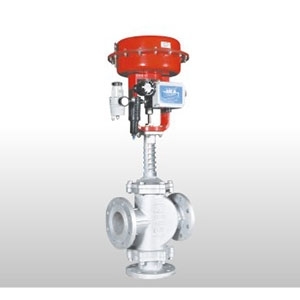Understanding Pneumatic Control Valves: How They Work and Why They MatterPosted by Aira Euro on April 15th, 2023  Pneumatic control valves are an essential component in many industrial processes. They are used to control the flow of various gases and fluids through pipes and other conduits. The valves work by using compressed air to control the movement of a piston or diaphragm within the valve body, which in turn controls the flow of the fluid or gas. What is a Pneumatic Control Valve?A pneumatic control valve is a type of valve that uses compressed air to control the flow of gases and fluids. These valves are typically used in industrial processes where precise control of fluid or gas flow is required. Pneumatic control valves come in a variety of shapes and sizes, depending on the specific application. How Does a Pneumatic Control Valve Work?Pneumatic control valves work by using compressed air to control the movement of a piston or diaphragm within the valve body. When the compressed air is released, it causes the piston or diaphragm to move, which in turn opens or closes the valve. The amount of air pressure used to control the valve can be adjusted to provide precise control over the flow of the fluid or gas. Advantages of Pneumatic Control ValvesThere are several advantages to using pneumatic control valves in industrial processes. One of the main advantages is their ability to provide precise control over the flow of fluids and gases. This makes them ideal for use in applications where accurate control is essential, such as in the pharmaceutical and food industries. Another advantage of pneumatic control valves is their durability. They are able to withstand harsh operating conditions and can last for many years without needing to be replaced. They are therefore a sensible choice for industrial applications. Applications of Pneumatic Control ValvesPneumatic control valves are used in a wide range of industrial applications. Some of the most common applications include:
In process control systems, pneumatic control valves are used to control the flow of fluids and gases through various stages of a manufacturing process. This ensures that the process is efficient and that the final product meets the required specifications. In HVAC systems, pneumatic control valves are used to control the flow of air through the system. This helps to maintain a comfortable temperature and humidity level in the building. In chemical processing, pneumatic control valves are used to control the flow of chemicals through the process. This helps to ensure that the process is safe and that the final product meets the required specifications. In food processing, pneumatic control valves are used to control the flow of liquids and gases through the process. This helps to ensure that the food is processed in a safe and efficient manner. In pharmaceutical manufacturing, pneumatic control valves are used to control the flow of liquids and gases through the manufacturing process. This helps to ensure that the final product is safe and effective. Overall, pneumatic control valves are an essential component in many industrial processes. They provide precise control over the flow of fluids and gases, are durable and long-lasting, and can be used in a wide range of applications. If you are involved in industrial manufacturing or processing, it is important to understand how pneumatic control valves work and how they can benefit your operations. Like it? Share it!More by this author |


